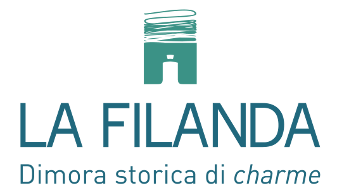The place was built in two different moments: the ground floor in the first half of the Nineteenth century and the first floor between the second half of the Nineteenth and the beginning of the following century. At the street level there were two large rooms with vaulted ceilings and four fireplaces, used for the processing of agricultural products; another room inclusive of bathroom was added later, intended to be the house, among others, of Marco Buratti, last accountant of the family De Viti De Marco. The same lodgings, years later, welcomed Adele Rossi, wife of the philosopher Benedetto Croce, a friend of Donna Carolina, sister of the great economist Antonio De Viti De Marco: it was him who, at the end of ‘800, first introduced silk farming in Casamassella.
To retrace the history of La Filanda, there are the “precious” archives stored in the Le Constantine Foundation, which houses some of the account books of the family De Viti De Marco.
Between the end of the Nineteenth and the beginning of the Twentieth century, there was the need of expanding the building with new rooms to be attached to the production cycle of sericulture. The first floor was built and the whole building was used as a spinning mill. During the First World War the British occupied part of the structure as a support base for the military camps of Otranto: this is witnessed by the pavilion vault of a first floor room which comes with small red bricks, a typically Anglo-Saxon technique. Then, over the years, it was the site of a tobacco factory, a food warehouse and around 1940 a part of the building was used, for a decade, as an elementary school. After the death of Antonio, La Filanda was inherited by James De Viti De Marco, his son and last marquis of Casamassella. In the early ’60s, when he died, the economic decline of the family began as well as the loss of the property: the building was fractionated and sold to four new owners.
Between 1962 and 1968, a portion of the ground floor became a weaving workshop, an art which became common, after the first post-war years, among the women of the place. Under the leadership of Donna Carolina De Viti De Marco and her daughter Giulia Starace, it had become an organized activity, able to elevate the women of the village both economically and spiritually.
Today, after so many years, La Filanda returned to be a single owed property, a workplace, a private space and an excellent spot of hospitality of Salento.
An historic exclusive residence near Otranto, an ideal place to completely relax during your holiday in Salento.





